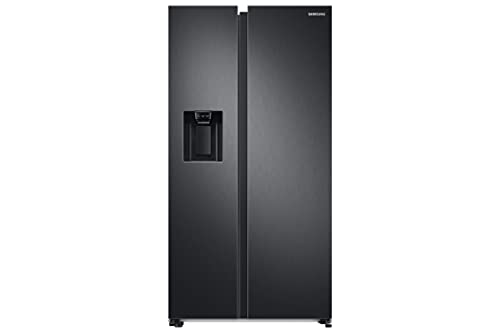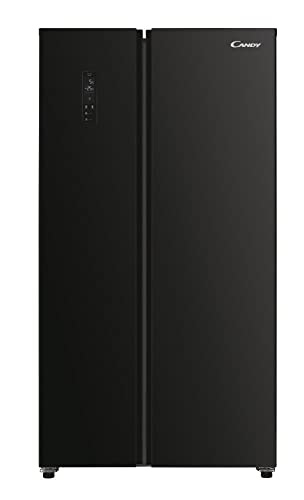Five Killer Quora Answers To Refridgerator UK
페이지 정보

본문
 The History of the Refrigerator
The History of the Refrigerator The conventional refrigeration of food produces significant greenhouse gas emissions due to leakage of refrigerant, as well as electrical power consumption. In 2019, these emissions made up 3.2 percent of the total UK territorial GHG emissions.
The conventional refrigeration of food produces significant greenhouse gas emissions due to leakage of refrigerant, as well as electrical power consumption. In 2019, these emissions made up 3.2 percent of the total UK territorial GHG emissions.The summer of 1959 was the first time cheap fridges uk were a common feature in British homes. Before that, the majority of households relied on cold slabs that were placed in pantries. These were inefficient and did not keep the same temperature.
The History of Fridges in the UK
Refrigerators are essential kitchen appliances that allow us to keep food and beverages fresh for several days. They also are extremely energy efficient. It's easy to forget that refrigerators were once considered luxury, however. In reality, it wasn't until the 1950s that they started to really gain popularity. In the beginning, it was a very hot British summer that helped make them famous.
Before refrigerators were invented, people used cold ice boxes that were insulated to keep their food cool. In the winter they would collect blocks of ice on lakes and store them for warmer months. These ice boxes were far from ideal, though. These ice boxes were heavy and needed to be carried by an "ice man". In 1918 the first refrigerators with electric motors were introduced to the market. However, it took a long time before they were widely used in homes.
The energy efficiency of fridges has improved significantly over time. They use less energy than they did 10 years ago. Some fridges use only 4 kW*h a day (equivalent of 170 W continuously). A majority of refrigerators in the US have an energy rating of A+.
In the early 1950s, manufacturers began to introduce refrigerators with separate freezer compartments. They also began making models with a chrome-finished finish which was extremely popular at the time. Since then, refrigerators are available in a variety of colours and finishes. Pastel shades, such as turquoise and pink, were popular in the 1960s. Earth tone colors, such as avocado green and almond, became more popular in the 1970s and the 1980s. By the 1990s stainless steel was a popular choice.
Fridges in the 1920s
Before refrigerators were invented, people used insulated wooden "ice boxes" to store fresh food and drinks. Ice man would deliver blocks of frozen ice to fill them, and they'd keep things cool all year round. These ice boxes were generally found in the kitchens of well-off households.
In 1918 the first electric refrigerator was released. It was placed on top of the existing icebox in a house. They were bulky noisy and expensive. The motor was situated on top of the refrigerator cabinet. They were also known as monitor-tops. William C. Durant bought out the Mellowes refrigerator company in 1918 and set up the Guardian Frigidaire company to mass make refrigerators. Durant was influenced by a design created by Cistercian monk Marcel Audiffren and Swiss engineer Albert Singrun. It was an absorption refrigerator, using sulfur dioxide as the refrigerant.
In the 1920s, new refrigerators were affordable to many households. They were able to hold more food and drinks and kept it cooler longer than the old ice boxes.
Refrigerator advertising was creative engaging, captivating and full of promises of cold drinks and fashionable designs. Vintage ads are interesting to read since they offer us an insight into the life of that time.
At the end of the 1920s, refrigerators with electric power were in almost all homes. Electric utilities aided this trend by offering discounts on their bills to those who purchased refrigerators. In the Great Depression, these appliances were considered crucial to home survival and their popularity increased.
Fridges in 1950s
Refrigerators were not widely available in the 1920s, but they became more commonplace in the 1950s. By the late 1960's, you could find them in almost every home (although it is worth noting that you probably wouldn't have found a fridge in every household in those days, as this was an expensive purchase for many).
The majority of the fridges uk of the early years were utilitarian and had simple designs that matched the kitchen decor of the day. They were typically smaller fridges that were mounted on legs, with a wide variety of colors available (though the majority were in the pastels - think mint greens). At the time there were several companies producing refrigerators, including Whirlpool, Gibson, Hotpoint and Tappan.
These brands were all renowned for their high-quality and reliable refrigerators. They also diversified their product ranges, offering other types of appliances for homes. For instance, Crosley was a manufacturer of radios before they moved into refrigerators in the 1940's and were renowned for their small refrigerators that could be tucked away in smaller spaces.
In the 1950's, refrigerators became more stylish and were marketed as an image of status for housewives. They were designed in a manner that was in line with the cabinets and the walls of the kitchen and were usually white with chrome handles.
In the 1960s, refrigerators began to transform into gadgets that included separate freezers and ice cube makers. The manufacturers also began to use cheaper materials, allowing them to sell their products at a lower cost.
Fridges in the 1960s
The buy fridge freezer was a necessity in most households during the 1960s, with a lot of households having two refrigerators. They were costly for a time - in America the average fridge cost on average $600 (that's approximately $7000 in 2024 dollars) however by the end of the 60s, they were only $200.
The fridge was a huge advancement at the time. It revolutionized kitchens and changed the ways we stored food. The fridge was also a wonderful home comfort, as it kept dairy and meat fresher for longer. This enabled people to shop in bulk prepare meals ahead of time and then keep them in the fridge.
The first refrigerators were made of poisonous gases like sulfur dioxide, ammonia and methyl chloride to cool food. This was hazardous for humans as these gases were released from refrigerators. In 1929 carbon dioxide was introduced as a safer way to cool food items. A number of people were poisoned and died.
This means that manufacturers could create safer and more efficient refrigerators that could be used in homes, with some refrigerators featuring an internal freezer compartment that was accessed through the refrigerator's door. These fridges were referred to as bi-door and they were very popular in the 1950s and 1960s.
Refrigerators of the 1960s were more futuristic than the ones of today, featuring soft curves and an overall elegant design that reflected a future of efficiency and domestic freedom. The refrigerators were still big, but the boxy design of the 1940s was beginning to fade.
Refrigerators Today
Modern fridge freezers come in a variety of colors and styles that can be customised to suit your kitchen and personal taste. Some offer smart features that connect to Wi-Fi, giving you the ability to quickly change the settings, and some include cameras for checking inside your refrigerator from anywhere.
French door models now dominate the market, as people are looking for modern designs and features like dispensers for water or ice, flex drawers and in some cases, a smart screen. Some are also rated A, B or+ in energy efficiency ratings, following changes to the labelling requirements for Refridgerator Uk appliances.
This Hotpoint model is a popular choice for its sleek design. It has an innovative UVNano self-sterilizing system that kills bacteria in the fridge. Additionally, it comes with two salad drawers that have adjustable humidity sliders. It's also spacious, with plenty of space for bottles, jars and a spacious utility compartment in the fridge's door.
Look for fridges with the green ICE+ feature that uses less energy. You can also save money by selecting a model that has an automatic ice maker. This will provide an ongoing supply of ice ready to use in the morning.
Buying a fridge freezer uk sale that's A or A+ in terms of energy efficiency is among the most beneficial ways to help the environment. It's important to consider the fridge's annual electricity usage as part of your household budget when you're deciding on an appliance. It is essential to keep in mind that we can't afford take electricity for granted. Everyone deserves access to reliable, affordable and abundant electricity to live a healthy and happy life and be comfortable. protect the planet.
- 이전글Guide To Crypto Casino List: The Intermediate Guide To Crypto Casino List 24.12.12
- 다음글How To Explain Key Cutting Car To Your Grandparents 24.12.12
댓글목록
등록된 댓글이 없습니다.